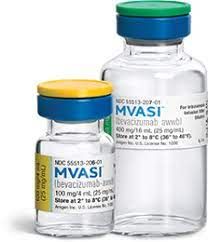- Bone Health
- Immunology
- Hematology
- Respiratory
- Dermatology
- Diabetes
- Gastroenterology
- Neurology
- Oncology
- Ophthalmology
- Rare Disease
- Rheumatology
Kaiser Permanente Investigators Confirm Mvasi Safety and Efficacy in Population With Nonsquamous NSCLC
The retrospective, real-world study (N = 353) conducted within the Kaiser Permanente network followed the July 2019 launch of the bevacizumab biosimilar Mvasi.
Investigators say they have confirmed the safety and efficacy equivalence of bevacizumab biosimilar Mvasi compared with its reference product (Avastin) in a real-world population of patients with advanced nonsquamous non–small cell lung cancer. The results were presented at Virtual ISPOR 2021.
Investigators studied outcomes in a population of adult patients within the Kaiser Permanente integrated health care network in Northern California and Southern California. Patients were initiated on the biosimilar (n = 58) between July 1, 2019, and March 30, 2020, or on the reference product (n = 295) between July 1, 2015, and June 30, 2018. The primary end point was overall survival (OS) and secondary end points were treatment persistence, serious adverse events (SAEs), and any-cause hospitalization and emergency department visits.
Investigators concluded that OS was not significantly different between the biosimilar and reference cohorts, and there also were no significant differences between cohorts for treatment persistence, SAEs, and hospitalization or emergency department use.
The 6-month OS was 72.1% for the biosimilar cohort and 79.0% for the reference product group (P = .27).
The incidence of hemorrhaging was 3.5% vs 3.7% for patients in the biosimilar vs reference groups, respectively. The respective percentages for thromboembolism were 5.2% vs 3.7%; severe hypertension, 8.6% vs 12.5%; gastrointestinal perforation, 0.0% vs 0.3%; and congenital heart failure, 0.0% vs 1.4%.
In discussion, investigators said study strengths included the capture of real-world outcomes immediately following the launch of Mvasi; comprehensive access to electronic health records on patient history; treatment and outcomes; and use of Cox proportional-hazards modeling, which offers the advantage of simultaneous analysis of the effects of multiple risk factors on survival time.
Limitations of the study included its observational, or retrospective, design, short follow-up, and small sample size.
For related reading on Kaiser Permanente findings on Mvasi in patients with metastatic colorectal cancer, click here.
Reference
Pham C, Ekinci E, Chiu T, et al. Real-world evaluation of biosimilar bevacizumab-awwb versus bevacizumab in patients with advanced non-squamous non-small cell lung cancer in a U.S. integrated healthcare delivery system. Presented at: Virtual ISPOR 2021; May 17-20, 2021. Accessed May 16, 2021. https://www.ispor.org/conferences-education/conferences/upcoming-conferences/ispor-2021
Newsletter
Where clinical, regulatory, and economic perspectives converge—sign up for Center for Biosimilars® emails to get expert insights on emerging treatment paradigms, biosimilar policy, and real-world outcomes that shape patient care.

